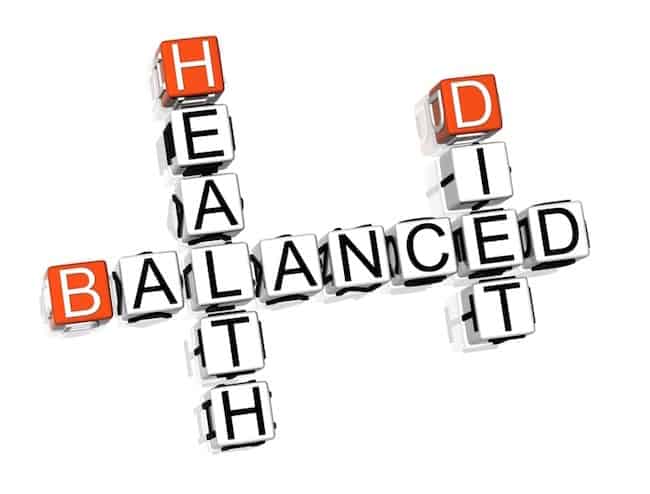
Many people who are diagnosed with Type 2 diabetes are overweight or obese, in fact in many cases; this is one of the reasons that they have become diabetic in the first place. For many people diagnosed with type 2 diabetes, weight loss can bring blood sugar levels back in line and avoid the need for medications such as insulin to control levels.
However, for diabetics the process of losing weight can be more complex than for an individual with normal insulin production and controlled blood sugar levels, as there are more factors to consider when starting a diet. Changes in blood sugar must be monitored closely and medications may need to be adjusted as weight is lost. It is also important to keep intake of carbohydrates regular and controlled, whilst still reducing overall food intake to cut calories.
For these reasons it is not advisable for a diabetic person to embark on a weight loss regime without the supervision of a health professional.
The benefits of weight loss
Studies have shown that even the smallest reduction in weight can have positive effects on blood sugar levels, even for very overweight people. Diet and exercise was found to reduce the risk of diabetes in at risk individuals who were overweight and had high blood sugar levels by around 58% in a National Institute of Health study. It is also agreed by experts that 5-10% weight loss in type 2 diabetics significantly reduces blood sugar levels and in some cases can mean they no longer require medications.
The American Diabetes Association says that a weight loss of 10 to 15 pounds can have the effects of
- Lowering blood sugar levels
- Reducing blood pressure
- Improving cholesterol levels
- Reducing the strain on joints such as the knees and hips.
Weight loss also gives people more energy, helps them to feel more confident, breathe more easily and generally feel healthier. Being overweight increases the risk of other lifestyle diseases such as heart disease, so by losing weight you can protect yourself from the onset of further illnesses.
How to lose weight with type 2 diabetes
For people with type 2 diabetes, dieting can be a little more complicated, as it is important to minimize the risk of high and low blood sugar levels. This will involve constant blood sugar monitoring and maintaining an even spread of good quality carbohydrates over the course of the day. It is best to discuss with your dietician as to the appropriate amount of carbohydrates per meal or snack for weight loss and blood sugar control, as this will differ from person to person.
A 500 calorie deficit per day is usually appropriate for diabetics trying to lose weight, but this should be discussed with a dietician to find the best diet for the individual. It is important to cut calories from carbohydrates, protein and fats to keep a balanced diet and constant blood sugar levels. A balanced diet for type 2 diabetes should be made up of about 50 to 55% carbs, 30% fat and 10 to 15% protein.
Popular low carb diets are not recommended for diabetics, as eliminating so many carbohydrates not only has massive effects on blood sugar levels, but may also cause ketosis. This occurs when the body does not have enough fuel from carbohydrates and starts to burn fat or muscle. Over time this puts stress on eyes, kidneys, the heart and the liver, which is far from ideal in a diabetic person who may already have damage to these organs caused by high blood sugar levels.
Hypo and Hyper glycaemia
When dieting, diabetics must reduce their intake, whilst still maintaining the delicate blood sugar balance and avoiding hypo or hyperglycaemia.
Hyperglycaemia happens when blood sugar levels drop drastically due to a high level of insulin in the body. This can cause dizziness, confusion and even fainting or coma in later stages. This is generally only a problem for those who are injecting insulin or medicating in some way. If you reduce your carbohydrate intake to lose weight, but do not change medications the level of insulin in the body may be too high, leading to a drastic drop in blood sugars. In addition to this, weight loss itself can cause a drop in blood sugar levels, so it is vital to discuss any plan to lose weight with your doctor and monitor medications closely.
Hyperglycaemia, or high blood sugar, occurs when the body doesn’t have enough insulin to control blood sugar levels. This is generally the case in type 2 diabetics and is the reason that medication or a controlled diet is required. High blood sugar levels generally take place if medications are not taken correctly or if a large amount of carbohydrate based foods are eaten all at once. For this reason, even if you are dieting, it is important not to forget your diabetes eating regime and to keep carbohydrates spread evenly over the day, as well as choosing the right types of carbs.
The right carbs
Choosing the right carbs is essential for good blood sugar control and will also help you to lose weight, as the best carbohydrate choices generally keep you fuller for longer.
Low GI carbohydrates are the best option as this cause a lower peak in blood sugar levels and keep levels constant for longer, compared with high GI foods which cause a high peak and then a rapid drop in sugar levels. This can lead to increased hunger and also require more medication to control.
Try to choose low to moderate GI foods at each meal, and if a food has a higher GI, try to combine it with a lower GI food or a higher fat food to balance out the effect on blood sugar levels. Beans and rice is a good example of this as the lower GI beans balance out the high GI rice, making it a healthy choice that won’t send blood sugar levels out of control.
When choosing carbohydrate options it is also better to consume whole grain varieties, as these are generally lower GI and also higher in vitamins, minerals and fibre. Fibre is important in the body for bowel health as well as having positive effects on cholesterol levels, so try to include high fibre sources in your carbohydrate sources. A high fibre diet can also help with weight loss, as the bulkier fibre rich foods are generally more filling, meaning you can eat less and still feel satisfied.
Other nutrients
Although diabetic individuals may often feel that the focus of their diet is on carbohydrates, it is essential to remember that for health and weight loss a balanced diet is needed with healthier choices being made across all the food groups. Fat intake is particularly important for weight loss as it has the most calories per gram of all the nutrients. A healthy diet should contain moderate amounts of heart healthy unsaturated fats, such as those found in olive oil, oily fish and avocadoes, and limit unhealthy saturated fats that are found in animal products. By reducing you fat intake, you are likely to decrease your calories and lose weight.
Alcohol
Alcohol intake should be moderated by diabetic patients, especially if trying to lose weight. Alcohol can cause hypoglycaemia if blood sugar levels and medications are not properly controlled and adjusted for drinking. Alcohol is also high in calories and can contribute to weight loss, so for best results limit intake as much as possible.
Exercise
Diet alone may help you lose weight, but adding exercise to your daily routine will speed up results and help you to feel and look better. Not only this, but exercise helps to control blood sugar levels by stimulating the production of insulin. Even a little exercise has benefits for blood sugar control and weight loss, and it also means you don’t have to cut out so many calories to lose weight as you are burning more.
If you are on medications or insulin for diabetes, it is important to consult with your doctor before starting to exercise, as medications may need to be adjusted to compensate for the effect of physical activity on blood sugar levels. If your insulin levels are too high you may risk hypoglycaemia, so it is essential to find the correct balance.
References used in this article










